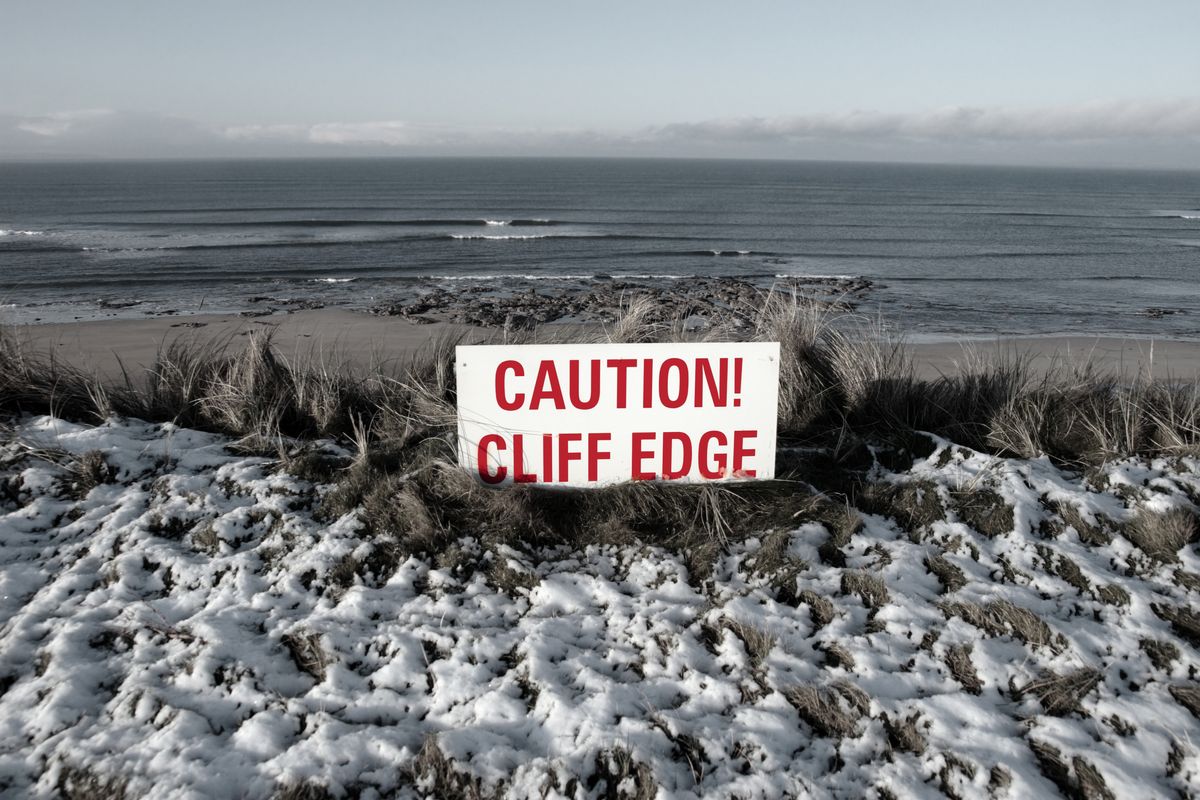Another woman goes over the glass cliff

Last month, we saw Liz Truss go over a glass cliff. She was Prime Minister of the United Kingdom for a tumultuous 45 days.
A glass cliff is tendency to promote women into a leadership role during a time of crisis when there is a high risk of failure. This promotion is typically followed by spectacular and public failure.
Research on the glass cliff has focused on women, and that bias is present in this article. The findings are likely applicable to gender non-conforming individuals and members of other underrepresented groups. For instance, Truss's successor, Rishi Sunak, is the first British Asian Prime Minister and he might be headed over the same glass cliff. In addition, an individual who is at the intersection of multiple underrepresented groups may experience a geometric increase in challenges.
Michelle K. Ryan and S. Alexander Haslam were the first to characterize the glass cliff. They found that women were more likely to be promoted during a crisis for multiple reasons.
- There was strong association between female management and failing companies.
- There is a perception that women have better "soft skills" which are needed during a downturn, which is a kind of benevolent sexism.
- Women have fewer advancement opportunities and are more likely to accept a position with a high risk of failure.
- Men protect other men from high risk positions, a phenomenon called "in-group favoritism."
- Women are viewed as more expendable.
- Appointing a woman leader can signal that drastic action is being taken.
Looking specifically at large cap tech companies, Douglas Branson wrote in his 2018 book about eight women CEOs who got the job during a crisis or downturn. (There were only an additional 4 women tech CEOs in his study who were not glass cliff hires.) As the list below shows, some women do succeed despite being hired during a crisis or downturn.
- Carleton Fiorina, HP, 1999-2005. Fiorina's time included acquisitions, layoffs, operating losses, and falling stock prices. At the end, she was forced to resign by the board.
- Safra Catz, Oracle, 1999-present. During Catz's tenure, Oracle's market share went from over 40% to 0.41% for cloud services.
- Anne Mulcahy, Xerox, 2001-2009. Mulcahy oversaw thirteen consecutive quarters of losses and a stock price drop from $10.05 to $6.82. Mulcahy was named CEO of the Year before her retirement.
- Patricia Russo, Lucent Technnologies (later Alcatel), 2002-2008. Russo returned Lucent to profitability in 2004 after three years of losses and subsequently took the helm at the post-merger Lucent/Alcatel.
- Carol Bartz, Yahoo!, 2009-2011. Despite making cuts to the work force, reducing costs, and restructuring the organization, Bartz wasn't able stop the losses and take Yahoo! in a positive direction. She was removed from the role by the board.
- Meg Whitman, HP, 2011-2017. After three years of losses, layoffs, and a 62% decline in stock price, Whitman broke up the iconic company.
- Marissa Mayer, Yahoo!, 2012-2017. Every move that Mayer made as CEO was under the microscope, and there was a lot of second guessing in the media coverage. When she wasn't able to turn around the Internet giant, she was dismissed by the board, following a sale to Verizon for $4.8 billion, a fraction of its peak value of $125 billion
- Virginia Rometty, IBM, 2012-2020. Rometty oversaw five years of quarterly revenue declines before she retired.
Today, among Fortune 500 companies, 32 (6.4%) are women and 1 transgender woman (Sue Nabi of Coty). This group includes five in tech: Safra Catz (Oracle), Shar Dubey (Match Group), Christine Leahy (CDW), Lisa Su (AMD), and Jayshree Ullal (Arista Networks).
But in the four years since Branson's study, I haven't seen anything that would suggest a decrease in glass cliff promotions. The technology sector has largely been on an upswing. In the last six months, many tech companies have laid off staff and tightened budgets. We are now entering an era when tech companies are contracting, and one might occur.
Glass cliff promotions are not limited to the C-suite. To my knowledge, I've not had the opportunity to be a glass cliff promotion. But I have seen a woman head a death march project.
How about you? Have you experienced a glass cliff promotion? How did you cope? How did it turn out?
